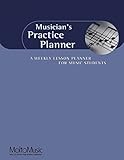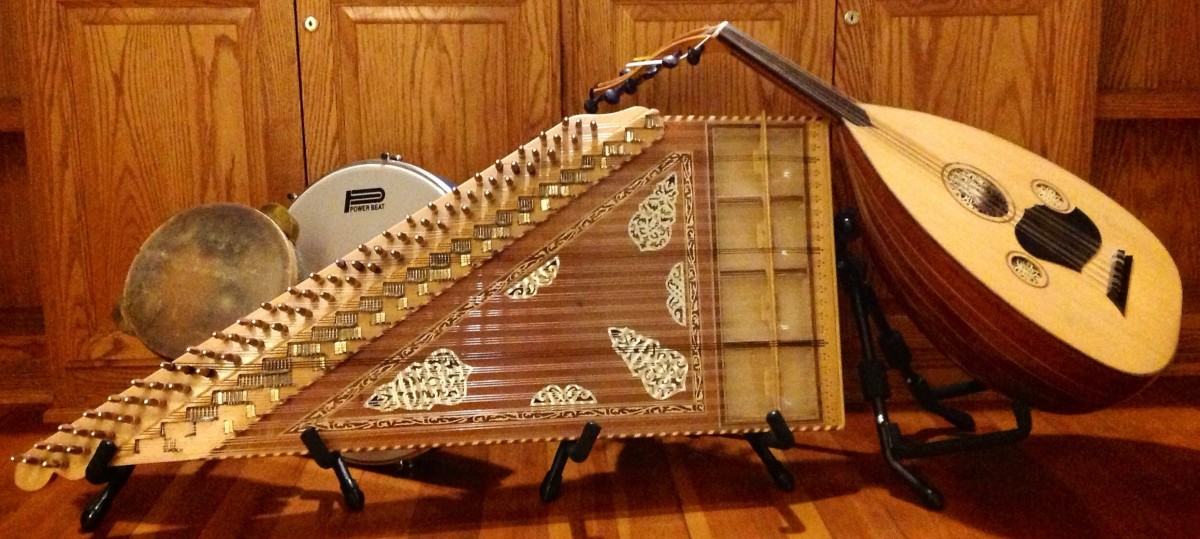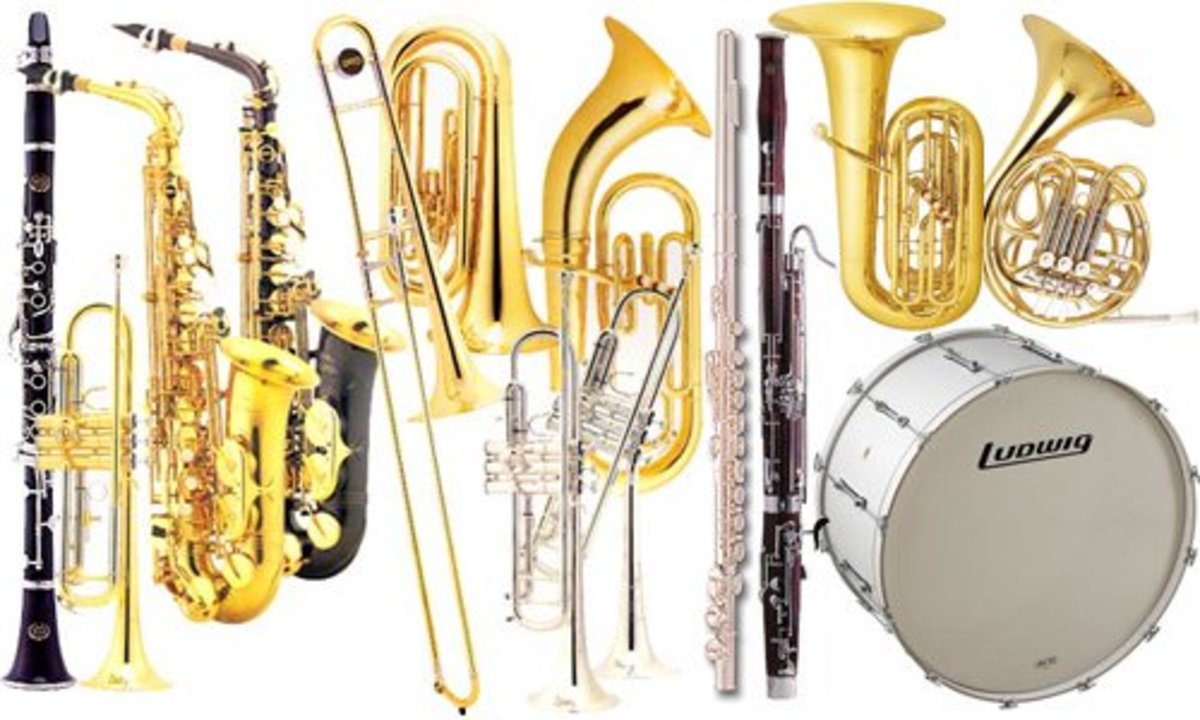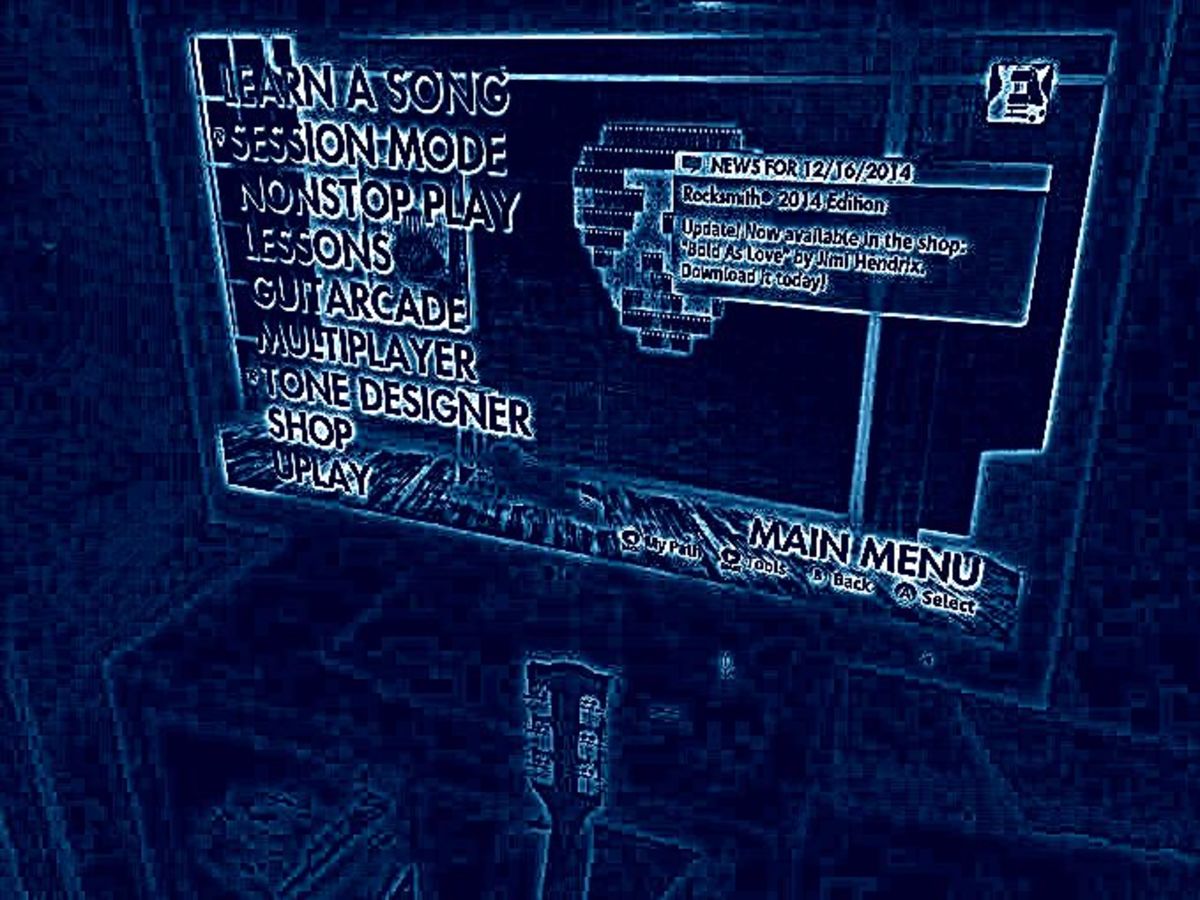Music Practice Tips

Practice Tips for Music Students!
It's so much fun to play a musical instrument! Working with other musicians, performing in front of people, traveling or touring to exciting places, and competing in band competitions are other special activities that musicians may enjoy. Improving musical skills takes practice though! As a musician and music teacher, I've noticed that the word "practice" can quickly turn into an unpopular word for busy instrumentalists.
Practice is important not only to music, but to anything that someone wants to become good at doing. Does it have to be torture to practice (as some young music students I know seem to think at times)? No, of course not! Practice may be a very enjoyable and productive experience. Parents of my students are always asking me how to help their children at their instrument. I've collected some tips that may make music practice time easier, more constructive, and a time in which to look forward.
Take a look ~ hopefully there will be some music practice tips that will make your time (or your child's time) with an instrument be the best it can be! There are also places for you to share your suggestions with other musicians who pass by here.
Great Flutist Print by MushinCA
"Believe that you are a great musician, then work to make it a reality!"
Your attitude towards practice time can make a huge difference
on how much you accomplish during a practice session. ...
Daily Reachable Goals for Music Practice
Want to be a super musician? Just pick up an instrument today and become the latest rock star tomorrow! Yeah, right! Not! Just like anything, if you want to become good at something, it takes a lot of patient, dedicated work over a period of time to become better.
I know we all want to do the very best we are able to do, but it doesn't happen all at once. It amazes me how many of my beginning students (especially the adult ones) expect to just be able to play something right away. Then they get frustrated when they are not able to play what they want after two tries. Unfortunately it takes many more than that to be proficient at an instrument. The good news is that you are one step closer every time you give it a try!!
Ever hear of the the "little engine who could"? You know, he was the little engine who was challenged with taking a large load over the mountain, even when larger trains failed. I love how he doesn't give up at the first sign of difficultly or use negative words about his efforts. Instead he first mentally prepares himself - "I think I can, I think I can, I think I can ..." - then keeps pushing toward his goal. Little by little he pushes on toward his ultimate goal. I suppose he could have given up when each "chug" was so small appearing to be nothing, but he doesn't! Each push sends him one more step toward where he wants to go, what he wants to reach. His determination keeps him going until he reaches his destination.
My musical friends, when you practice, do give yourself goals because it helps you get to a better place, but be realistic also in your goal setting. Try giving yourself an overall goal to obtain, but then break it up into manageable bites. Try to accomplish your daily goals one at a time - you will be "chugging" a little further toward your destination each time!
For example - want to memorize and perform a Mozart Concerto? Cool - go for it! Depending on your level, you need to break it up into mini attainable accomplishments.
~ Give yourself a few days just to learn all the notes and fingerings of a section. (Notice I said 'section', not necessarily 'whole piece' yet!)
~ Check to make sure you are doing what the key signature tells you. Are you playing the flats, sharps, and naturals the right way?
~ Go back and check your note values and rhythm patterns. Count each note and measure carefully. Do you end up with the correct amount of beats per measure?
~ Do you have any stops that are not supposed to be there? If so, check the notes that you are stopping between, then practice going from one note to another in a drill until you can play them smoothly.
~ Are you keeping a steady beat? Watch out for places that seem to change tempo. Most people tend to speed up on easy parts and slow down on hard parts.
~ Continue to work through the passage until you can play it smoothly without any bumps or difficulties.
~ After you have worked through individual phrases, be able to play them together in longer sections.
~ When the basics are strong, add expressive qualities such as dynamics, phrasing, tempo, and emotions! =D
~ Memorization ~ If you have gone through and checked all of the musical basics and perfected them, you have probably already memorized the piece simply from the repetition. If not, play one phrase at a time looking at it a few times, then slowly look away from the page and play the same measures. Try it with a few more measures. Connect them together. Before you realize it, you will have the whole piece memorized!!
~ Congratulations on achieving your goals - one step at a time!!!!

Quantity of Practice
If you only practice once a week for about ten minutes, how do you think you will do?
It's like exercise to me (which I don't like to do)! I want to get in shape, but walking on that treadmill in my living room is the last thing that I want to do. I know it is good for me. I know that my health will be better once I do it, but I'd rather do just about anything than go on the thing! So, an adult student of mine challenged me to exercise after I challenged her in a particular area of her playing.
"Just start with 10 minutes a day at a slow easy rate. Then build up a little at a time, " she said. Sounded easy the way she put it, but my non-athletic self was screaming "no way" inside! But, she promised to practice her instrument a little each day if I exercised a little each day, so I kept my promise.
The first couple days I grumbled - a lot - "Why did I make this promise? I can't do this. It's just not my thing!" I kept at it though.
The next week I could hear a considerable difference in my student's playing. Her sound and breathing were so much clearer and stronger. Okay, I thought, she succeeded in improving, but I still didn't get anywhere. She asked me if I kept my half of the agreement. I said I did, but didn't feel as if I was improving any. She reminded me that it was okay if I wasn't ready to run a marathon today, but that I had succeeded simply by getting up and making the attempt everyday. She also gave me the old saying - "Rome wasn't built in a day!"
"Did it seem easier each day that you exercised?" she asked.
"Yes, I suppose it did get a little bit easier to get up and start each day."
"Did you improve during the week?"
"Well, yes, I walk longer than 10 minutes after the first couple days."
We both agreed that we were making progress and decided to keep each other accountable for our goals. Well, I'm still not a marathon runner, but I am feeling better about walking. It's getting easier to do without grumbling, and I have lost a few pounds - in fact, 36 pounds! She has made some nice accomplishments on her instrument, also, with a more routine practice schedule. We are still continuing our little experiment, but I have a good feeling about it for the future. I hope we both reach our goals but taking them one baby step at a time!
~ In your practicing, start with a small time frame if needed, but make it a consistent and daily effort. And yes, at times it will seem like it takes much effort. Make it a priority in your daily routine. (Just like I would love to be able to conveniently not have time to exercise in my day, I have to make it something that I don't put off!)
~ Once you have a routine going, it gets easier to keep your commitment. It become a habit to include your practice time in your day.
~ Increase your practice time a little bit each week until you get to a place where you are happy with your playing. Most teachers prefer for their students to practice a minimum of 30 minutes a day, but everyone is different. Some people will practice longer or shorter to get the same results.
Quality of Practice
How about the quality of practice? How can I get the most out of my practice time? ...
The article How to Practice Music Efficiently has some wonderful tips to make the best of your practice time.

Consistency in Practice
Do you practice when you 'feel' like it or as a set routine? A set music practice time and routine definitely make a difference in productivity!
More tips to come in the future ...
Online Practice Record: Keep track of your practice time, practice goals or materials, and stay in touch with your teacher all through this neat database!
Practicing with a Metronome
Metronome Techniques: 4 chapter book about practicing with a metronome.
Websites with Music Practice Ideas
Practice Spot has many wonderful materials for musicians, teachers, and students! Read some informational articles for teaching, practicing, and more from their Infopedia.
The Free Tools & Resources page has games, worksheets, music theory activities, musical terms dictionary, and advice. Suggestions and advice for music studios are also available.
This article, "Teaching How to Practice", contains advice for teachers to help their students practice.
Essential Music Practice Techniques: read several articles and tips about how to improve your practicing.
Advice, Articles, and Videos about Music Practice at eHow
Music Practice Skills from Learn-Theory-Music
The site How to Practice ... Better Music Practice: resources, methods, tools, and a community of musicians to help you practice better!
Music Learning Workshops: "Music Practice Methods
and Music Practice Techniques" That Accelerate Your Playing Abilities
How Much Time Do I Need to Practice?"
Music Matters Blog: Milestones to Musical Mastery Practice Incentive
Music Practice Tips: "That Can Double Your Progress In Half The Time! ~ 5 Tips That Can Make a HUGE Difference In Your Musical Practice!"
Home Music Practice at Children's Music Workshop
Music Noodle: Create A Good Music Practice Environment
Music Noodle: Great Music Practice Advice for Parents of Young Musicians
Practice, Practice, Practice: How to Get to Carnegie Hall
14 Sites That Help You Practice Music More Effectively
Let's Make Music Practice Chart from Crayola
How-To Guide for Making the Most of Your Practice Time


![Tackling the Monster: Wynton on Practice [VHS]](https://m.media-amazon.com/images/I/21A9N12HJML._SL500_.jpg)







